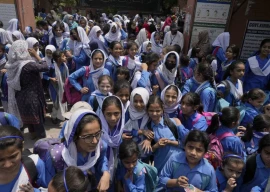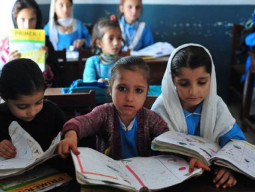
Sri Lanka did nothing to irritate India, other than win some games of boring cricket. But that did not stop India’s intelligence agencies from funding, training and arming the Liberation Tigers of Tamil Eelam (LTTE). There was a period when traffic violators in Chennai would escape the police by claiming LTTE connections. In other words, they ran their own show and cared a sod for law or propriety. They did worse things in Sri Lanka. Their pioneering suicide bombers would blow themselves into smithereens without a thought for heaven and all its perks. But when the wheel turned, as is wont to, India found itself fighting them. The irony was not lost on an Indian Army officer saved only by the intervention of a Sri Lankan Army unit. He remarked, “What a twist of fate, fighting the guys we trained, injured by the bullets we gave them and saved by the Sri Lankans, officials and pedestrians using ammo supplied by Pakistan.” Even as the army fought the LTTE, some Indians maintained contact with them. All that changed when Rajiv Gandhi died and then, so did the narrative. Subsequently so did the relationship between India and Sri Lanka. Now consider this.
Afghanistan did nothing to irritate Pakistan. Yet that did not prevent Pakistan from supporting militants across the border. But wait a moment, this is not 1979 and Ziaul Haq, but before the Soviet Union invaded Afghanistan. The transnational trio of terror had tapped Hekmatyar and Masood long before Comrade Brezhnev crossed the Oxus. Zbigniew Kazimierz Brzezinski let loose the secret in an interview to a French magazine. He justified the policy “so as to provoke the Russians into invading Afghanistan, and then trap them there”, to paraphrase his words. After the Laal Salam happened in Kabul, the scale became bigger, more monies flowed in, and the armies of the faithful increased, from Maghreb to Mashriq. The rest, as they say, is known to any Karachi kid. Even A Case of Exploding Mangoes didn’t change the narrative. So what causes a state to change its policies, for instance with regard to lending support to groups that may be seen by the rest of the world as terrorists?
It takes a catastrophe. An action, an incident, so outrageous that it sucks breath out of the soul. India had its moment of reckoning in 1991 and, despite losing and winning to Sri Lanka since then, has cleaned up its act. The focus is on Pakistan now and the anticipation whether it recognises the outing of Osama bin Laden as a catastrophe. It doesn’t take rocket science to realise that finding Osama in a cantonment, or close to one, is very bad news. No explanation washes clean, not within Pakistan, and not with the world. It makes eminent sense to cut the losses and clean the slate. In matters of state policy, where lives are at stake, there is no such thing as prestige or ego. Those that believe in such material fancies, live disconnected from the sidewalks of society.
When the US decides to take out another terrorist target, it will —Pakistani threats notwithstanding. There is nothing Pakistan will do about it, for that is the reality. India, on the other hand, hasn’t the political will nor the societal resilience to enliven the dreams of those who seek to ape the US. The sooner those that talk such things realise that, the better for all of us, (united by geography, if nothing else), Dabangg, India is not. And neither is Pakistan. That is the monopoly of Salman Khan.
Published in The Express Tribune, May 11th, 2011.



1734589948-0/Untitled-design-(51)1734589948-0-165x106.webp)
1734588043-0/Untitled-design-(50)1734588043-0-165x106.webp)






1734468458-0/Copy-of-Untitled-(50)1734468458-0-270x192.webp)
1734511806-0/Untitled-design-(5)1734511806-0-270x192.webp)






COMMENTS (10)
Comments are moderated and generally will be posted if they are on-topic and not abusive.
For more information, please see our Comments FAQ